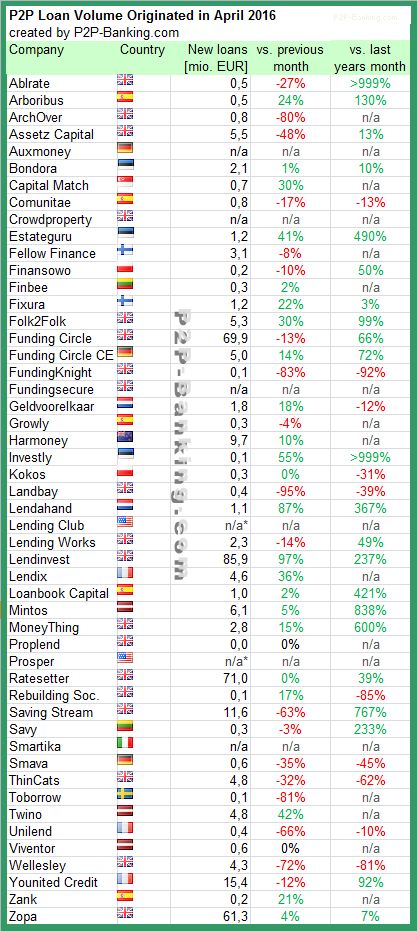After reviewing information obtained through an RFI the US treasury today published a whitepaper on marketplace lending.
The white paper titled, “Opportunities and Challenges in Online Marketplace Lending,†provides an overview of what the Treasury Department heard in response to its Request for Information, and it contains research on and recommendations for the industry.
Executive Summary
This white paper has been prepared by the Department of the Treasury (“Treasuryâ€) to continue the work initiated by the issuance of the Request for Information (“RFIâ€) “Public Input on Expanding Access to Credit through Online Marketplace Lending.†This white paper establishes an overview of the evolving market landscape, reviews stakeholder opinions, and provides policy recommendations. This paper also acknowledges the benefits and risks associated with online marketplace lending, and highlights certain best practices applicable both to established and emerging market participants.
Advances in technology and the availability of data are changing the way consumers and small busiÂnesses secure financing. Online marketplace lending has emerged as an industry offering faster credit for consumers and small businesses. Through this effort, Treasury took steps to understand the potential opportunities and risks presented by this evolving industry. By engaging directly with industry, Treasury hoped to foster discourse about how this industry could best serve the financial needs of the American public. Treasury received approximately 100 responses to the RFI from online marketplace lenders, trade associations, consumer and small business advocates, academics, investors, and financial institutions. Comments covered a wide range of issues, but several common themes emerged, including the following:
1. Use of Data and Modeling Techniques for Underwriting is an Innovation and a Risk: RFI commenters agreed the use of data for credit underwriting is a core element of online marketplace lending, and one of the sources of innovation that holds the most promise and risk. While data-driven algorithms may expedite credit assessments and reduce costs, they also carry the risk of disparate impact in credit outcomes and the potential for fair lending violations. Importantly, applicants do not have the opportunity to check and correct data potentially being used in underwriting decisions.
2. There is Opportunity to Expand Access to Credit: RFI responses suggested that online marketplace lending is expanding access to credit in some segments by providing loans to certain borrowers who might not otherwise have received capital. Although the majority of consumer loans are being originated for debt consolidation purposes, small business loans are being originated to business owners for general working capital and expansion needs. Distribution partnerships between online marketplace lenders and traditional lenders may present an opportunity to leverage technology to expand access to credit further into underserved markets.
3. New Credit Models and Operations Remain Untested: New business models and underwriting tools have been developed in a period of very low interest rates, declining unemployment, and strong overall credit conditions. However, this industry remains untested through a complete credit cycle. Higher charge off and delinquency rates for recent vintage consumer loans may augur increased concern if and when credit conditions deteriorate.
4. Small Business Borrowers Will Likely Require Enhanced Safeguards: RFI commenters drew attention to uneven protections and regulations currently in place for small business borrowers. RFI commenters across the stakeholder spectrum argued small business borrowers should receive enhanced protections.
5. Greater Transparency Can Benefit Borrowers and Investors: RFI responses strongly supported and agreed on the need for greater transparency for all market participants. Suggested areas for greater transparency include pricing terms for borrowers and standardized loan-level data for investors.
6. Secondary Market for Loans is Undeveloped: Although loan originations are growing at high rates, the secondary market for whole loans originated by online marketplace lenders is limited. RFI commenters agreed that active growth of a securitization market will require transparency and significant repeat issuances.
7. Regulatory Clarity Can Benefit the Market: RFI commenters had diverse views of the role government could play in the market. However, a large number argued that regulators could provide additional clarity around the roles and requirements for the various participants.
In order to encourage safe growth and access to credit through the continued developments of online marketplace lending, this white paper introduces the following recommendations to the federal governÂment and private sector participants:
1. Support more robust small business borrower protections and effective oversight;
2. Ensure sound borrower experience and back-end operations;
3. Promote a transparent marketplace for borrowers and investors;
4. Expand access to credit through partnerships that ensure safe and affordable credit;
5. Support the expansion of safe and affordable credit through access to government-held data; and
6. Facilitate interagency coordination through the creation of a standing working group for online marketplace lending.
In addition, this white paper identifies potential trends that will require ongoing monitoring. These include the evolution of credit scoring, the impact of changing interest rates, potential liquidity risk, increasing mortgage and auto loans originated by online marketplace lenders, potential cybersecurity threats, and compliance with anti-money laundering requirements. The business models and data-driven algorithms supporting this industry have largely developed in favorable credit conditions. Treasury believes it is important to consider policies that could minimize borrower risks and increase investor confidence in a less favorable credit environment. Continue reading →


